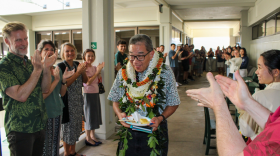As we head into hurricane and wildfire season, a recent study among Hawaiʻi families found that few are prepared for emergencies like natural disasters.
More than 250 Oʻahu parents of young keiki were surveyed about their emergency readiness. The study was led by Gary Glauberman, an assistant professor at the University of Hawaiʻi at Mānoa School of Nursing.
Standard recommendations include building a preparedness kit of food, water and medicines, and creating a family emergency plan.
The study found that fewer than a third of families had both supplies and a plan, while more than a third had neither.
"The persons who were considered prepared were outnumbered by those who are not at all prepared for emergencies. It does show that there's a lot of work to be done," Glauberman said.
He added that there are a number of barriers these families face.
"These included not having enough resources to maintain preparedness kits, or not having enough transportation to evacuate, or not understanding emergency preparedness information due to language barriers," Glauberman said. "And so there are a lot of ways that we can adjust what we're doing to meet the needs that people have and help them overcome some of these barriers that they may face."
As for preparedness in his daily life, Glauberman said he keeps emergency supplies in his car in case he's stuck somewhere and unable to get home.
For more information on how to be better prepared, <i>click here.</i>
This interview aired on <i>The Conversation</i> on June 10, 2024. The Conversation airs weekdays at 11 a.m. on HPR-1.





